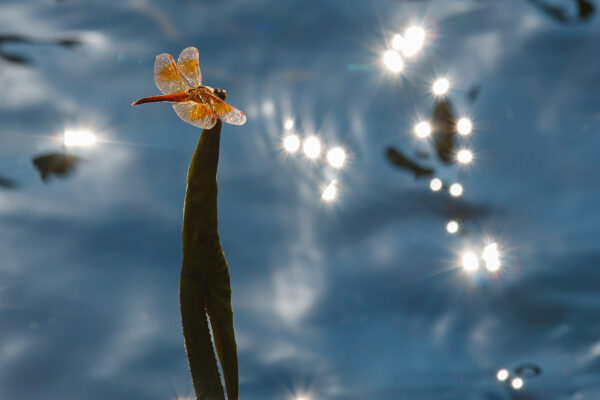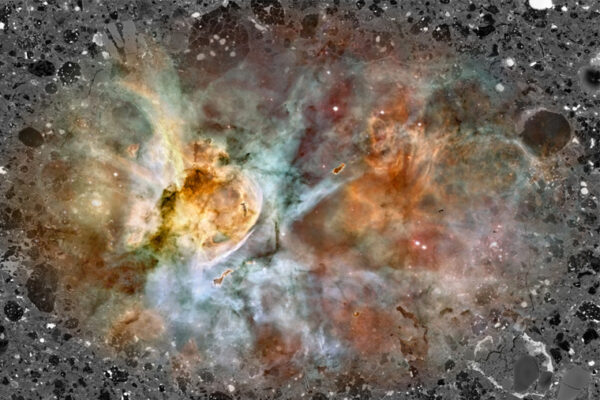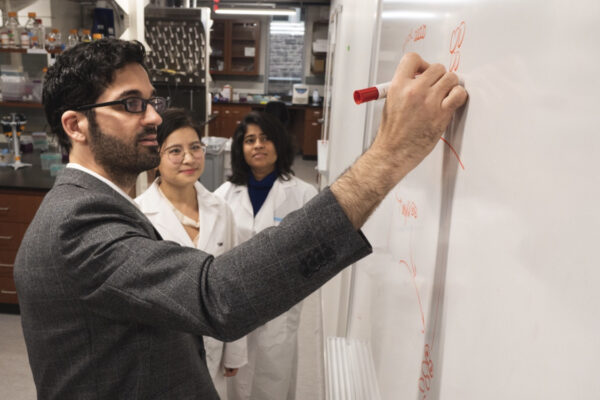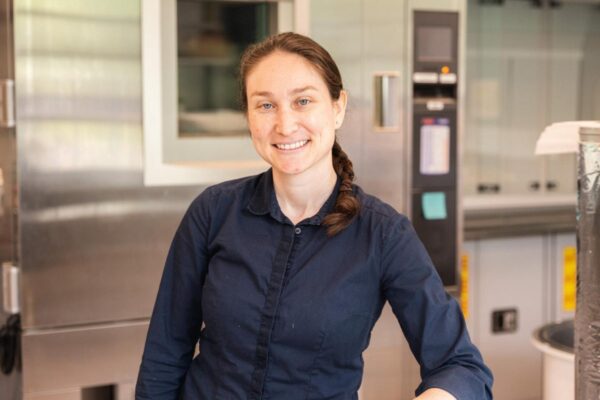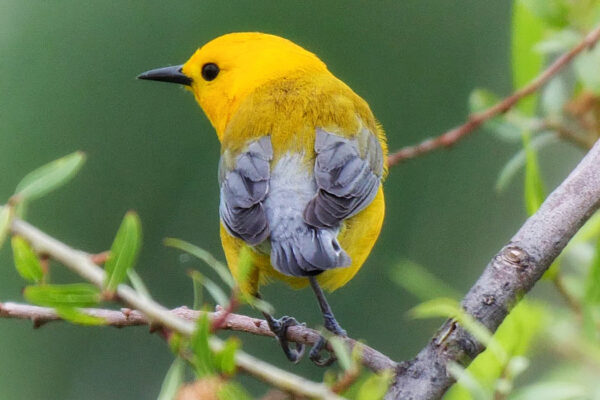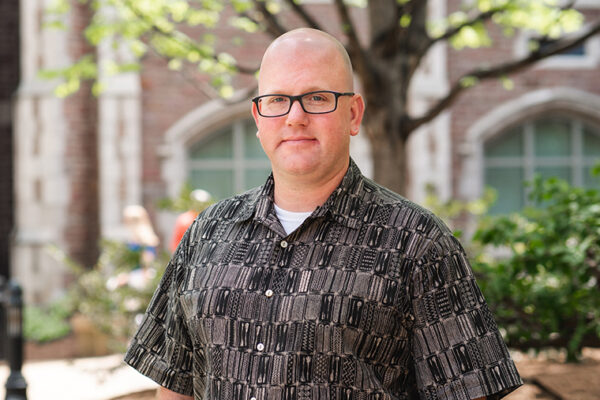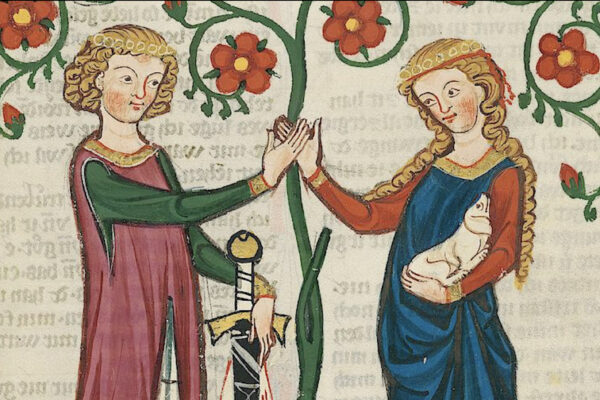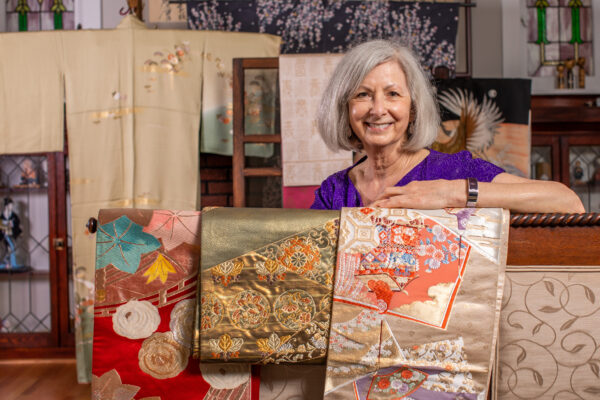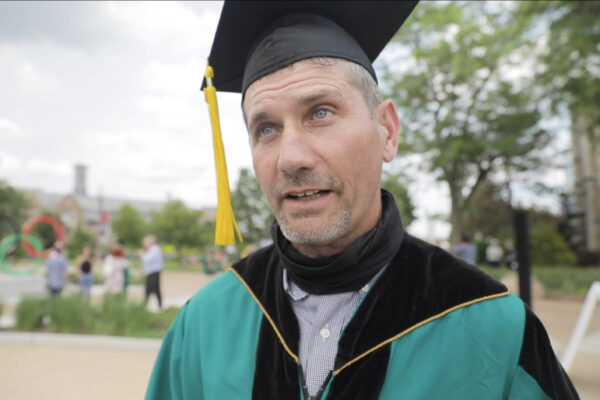Male dragonflies lose their ‘bling’ in hotter climates
A study in the Proceedings of the National Academy of Sciences led by Michael Moore, a postdoctoral fellow with the Living Earth Collaborative, finds that dragonfly males have consistently evolved less breeding coloration in regions with hotter climates.
Sculpted by starlight: A meteorite witness to the solar system’s birth
Researchers examine a 4.6 billion- year-old rock to better understand the solar system’s beginning, and a modern mystery.
Washington University collaborates with Agilent, Merck to expand metabolomics research
Using top-of-the-line research instrumentation from Agilent and Merck, scientists in the Department of Chemistry in Arts & Sciences will develop new metabolomics workflows of interest to many members of the drug-development community.
Physicist Nagy has leading role in next-gen balloon mission
With NASA’s latest balloon technology, Johanna Nagy in Arts & Sciences is looking 13 billion years into the past, using the oldest light in the universe, to precisely measure the polarization of the microwave sky.
Living Earth Collaborative announces 2021 seed grant recipients
Collaborators from eight St. Louis area institutions will investigate the microbiomes of local box turtles; the diversification of flowering plants in the Gulf of Guinea; and adaptation to climate change and biodiversity loss in Madagascar, among other projects.
Rauch’s cosmic ray research probes origins of matter in the Milky Way
Brian Rauch, research assistant professor of physics in Arts & Sciences, co-authored a study in Physical Review Letters that suggests that certain cosmic rays move through the galaxy differently. The research addresses fundamental questions about how matter is generated and distributed across the universe.
‘A wonderful catastrophe’
“We often think about genres of love narratives, whether they’re films or novels, as frivolous,” said Jessica Rosenfeld, of Arts & Sciences. “But in the Middle Ages, love stories, love narratives, love songs, were invested with the highest seriousness.”
Rebecca Copeland: On learning to wear a kimono
With the publication of her first novel, “The Kimono Tattoo,” Rebecca Copeland moves from translation to fiction writing and brings a literary perspective to the cultural history of kimonos.
Just the beginning
Jim Brock and Kevin Hammerschmidt began their college careers with the Washington University Prison Education Project. This spring, both were among the first PEP alumni to earn their bachelor’s degrees on the Danforth Campus.
The ‘Final 40’
Three graduates document their final days as Washington University students.
View More Stories
